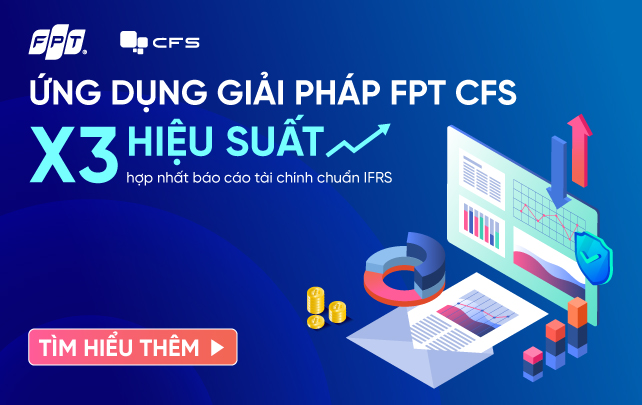In an increasingly connected and complex world, businesses are facing increasing pressure to provide accurate and transparent accounting information. To meet these requirements, IFRS has gradually shifted to applying digital technology to improve the quality and transparency of accounting information.
The basis of the digital transformation trend in IFRS
The development of information technology is an important driving force. According to IDC’s report, by 2023, investment costs in accounting software solutions are expected to reach $25 billion, an increase of 8% compared to the previous year. Gartner’s research also shows that 65% of large accounting firms have applied or are planning to deploy artificial intelligence technology to increase accuracy and efficiency.
The need for accurate and transparent accounting information is an important factor. According to a KPMG survey, more than 80% of investors said that accurate and transparent accounting information is the most important factor in their investment decisions. A loss of up to 25% in stock value can occur if financial reports are not transparent.
Increasing international consensus and consistency is also a factor that needs to be considered. According to the IASB, more than 120 countries and regions have adopted or committed to adopting IFRS. PwC research also shows that harmonizing accounting regulations between countries can reduce costs and increase comparability between businesses in the international market.
Read more: IFRS Conversion Roadmap in Vietnam

Important changes in IFRS related to digital transformation
IFRS 9: Digital transformation in credit risk management through the use of big data and data analytics tools. IFRS 9 provides specific guidance on the classification and assessment of debts, as well as the handling of credit risk losses. By using big data and data analytics tools, financial institutions can assess and forecast credit risks more accurately, helping them make smart and effective financial decisions.
IFRS 15: Applying digital technology to identify and allocate revenue accurately and transparently. IFRS 15 requires businesses to apply a common method to identify revenue from contracts with customers. Using digital technology helps automate the process of identifying revenue and allocating it to transactions, thereby increasing the accuracy and transparency of financial statements.
IFRS 16: Use technology to manage leases and related accounting reports. IFRS 16 requires businesses to record all leases in their financial statements. Using digital technology to automate the lease management process, from recording information to generating accounting reports, helps increase the accuracy and transparency of accounting information related to leases.
Read more: Solution for businesses converting from VAS to IFRS

Advantages and disadvantages of digital transformation trends in IFRS
Advantages
Increasing the accuracy and transparency of accounting information: Using digital technology helps eliminate dependence on manual processes, thereby minimizing errors and mistakes in the processing of accounting data. The automation system also provides continuous monitoring and auditing capabilities, creating accurate and transparent reports.
Enhancing risk management capabilities: Digital technology provides powerful analytical tools to comprehensively assess financial risks. Forecasting models based on big data and artificial intelligence (AI) can help predict and manage risks more effectively.
Save time and costs in the reporting process: Automating accounting processes helps reduce the time and costs of preparing financial reports. Automation tools also help optimize workflows, reduce waste, and increase productivity
Disadvantages
Initial costs for system conversion: Implementing digital technology in accounting systems requires a large investment in purchasing and implementing new technology solutions. In particular, training employees and adapting to changes can create significant costs.
Information security and data management risks: Using digital technology can create issues related to information security and data management. Businesses need to ensure that they have effective data security and management measures to deal with these risks and comply with relevant legal regulations.
The digital transformation trend in IFRS is not only a strong step forward in international accounting standardization but also a direction that opens up many opportunities and challenges for businesses around the world. Understanding and being willing to adapt to technological changes will play a key role in shaping the future of the accounting and finance industry.











